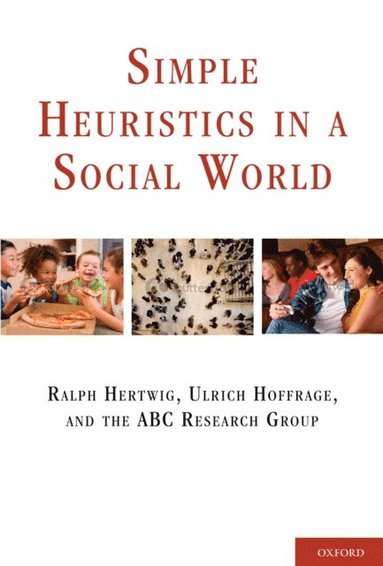
Fler böcker inom
- Format
- E-bok
- Filformat
-
EPUB med LCP-kryptering (0.0 MB)
Om LCP-kryptering - Nedladdning
- Kan laddas ned under 24 månader, dock max 6 gånger.
- Språk
- Engelska
- Antal sidor
- 672
- Utgivningsdatum
- 2012-11-29
- Förlag
- Oxford University Press
- ISBN
- 9780190623593
Simple Heuristics in a Social World E-bok
E-bok (LCP),
Engelska, 2012-11-29
Finns även som
Kundrecensioner
Har du läst boken?
Sätt ditt betyg »
Fler böcker av författarna
-
Taming Uncertainty
Ralph Hertwig, Timothy J Pleskac, Thorsten Pachur
-
Deliberate Ignorance
Ralph Hertwig, Christoph Engel
-
Wer wagt, gewinnt?
Laura Martignon, Ulrich Hoffrage
-
Fremdenfeindlichkeit und Rechtsextremismus
Felix Bchel, Judith Glck, Ulrich Hoffrage, Petra Stanat, Joachim Wirth
Du kanske gillar
-
The Daily Laws
Robert Greene
Häftad -
Atomic Habits
James Clear
Häftad -
Atomic Habits
James Clear
Inbunden -
Psychology 5e
Nigel Holt
Häftad
